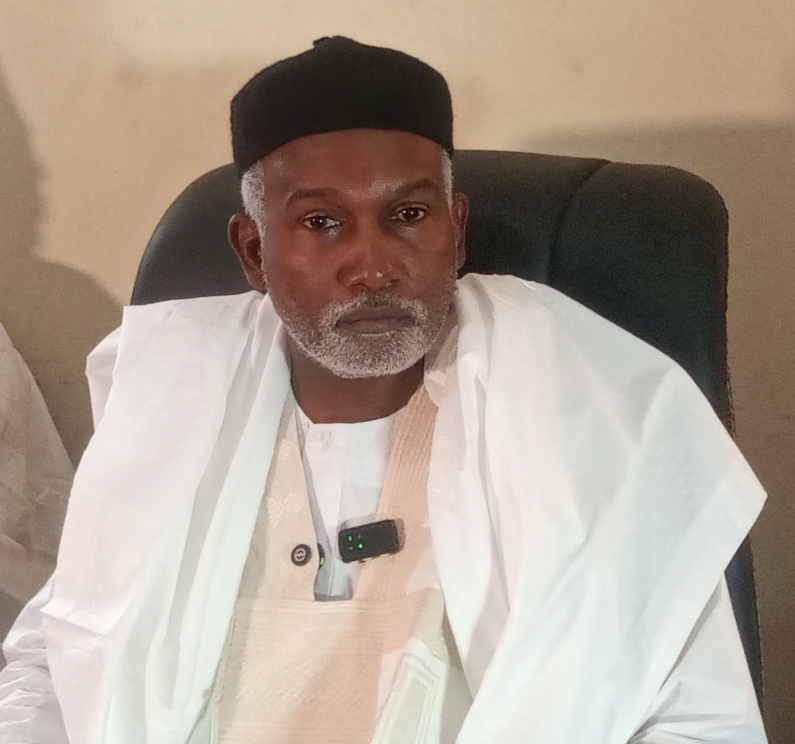Nigeria
Minister Outlines Factors Behind Nigeria’s Hardship, States Tinubu Has No Control Over Them

A Nigerian minister highlights the key issues contributing to the country’s economic difficulties, emphasizing that President Tinubu has limited control over these challenges, which include global and structural factors.
The current hardship in Nigeria has been attributed to past policies by the Minister of Foreign Affairs, Ambassador Yusuf Tuggar.
Tuggar revealed during a Saturday media session in Bauchi that additional factors beyond the control of President Bola Tinubu’s administration have also contributed to the hardships.
He stated that the country’s economy was severely impacted by the 2008 global financial meltdown, which was followed by other inevitable calamities affecting the world as a whole.
“We experienced the COVID-19 pandemic, during which borders were closed and movement of goods, services, and people was brought to a standstill. Tragically, many lives were lost worldwide. This situation significantly impacted the cost of living globally, including in Nigeria,” he recalled.
“As the global economy has developed, there have been numerous leakages, international trade exchanges, and cross-border movements of people; all these factors were impacted, leading to a rise in prices.”
Over the years, Nigeria has been importing the petrol used domestically.
We had four refineries: one constructed in the 1960s in Port Harcourt, another larger refinery also located there, as well as the Kaduna refinery and, of course, the Warri refinery.
These refineries were constructed at a time when Nigeria’s population was significantly smaller than it is now.
Currently, with a population of 220 million, petrol consumption has increased; however, we have not invested in expanding our refinery capacity over the years.
The minister explained that the current hardships worsened when Nigeria began importing more petrol, coinciding with a global increase in petrol prices.
“The exchange rate, which is also impacted by the subsidy, is another significant issue,” he noted.
“If we prioritize subsidizing consumption over production, our efforts have primarily supported industries focused on consumer goods. While this has aided industry prosperity to some extent, a significant portion of funds was unfortunately diverted into merely supporting the importation of petroleum.”
This meant that we were utilizing hard currency for imports.
When President Bola assumed office, he chose to implement macro-economic reforms. He recognized that without these changes, the cost of purchasing expensive petroleum for daily use would be unsustainable as it simply vanishes over time.
“President Tinubu initiated reforms, ending the subsidies for petrol imports and implementing changes to exchange rate operations.”
Tuggar stated that having different exchange rates for various purposes allowed room for arbitrary practices.
He revealed that some individuals were obtaining foreign exchange in dollars, not to import the raw materials needed by industries but rather to sell it on the market and pocket the money.
He (President Tinubu) unified the exchange rate to establish a single rate.
During this time, the actions of cryptocurrency traders were destabilizing the system.
A particular cryptocurrency exchange was exploiting these reforms to engage in money laundering.
Individuals who had embezzled money and kept it in Nigeria were using cryptocurrency to transfer the funds elsewhere. This undermined the reforms being implemented by the Tinubu administration, consequently leading to increased hardship.
This is why several individuals involved in these illegal activities, along with representatives of cryptocurrency traders, have been arrested and charged in court.
The minister stated that the President has been actively working to alleviate the country’s current hardships by distributing palliatives to citizens and providing farmers with fertilizer, inputs, seedlings, pesticides, among other resources.
Tuggar encouraged citizens to be patient with President Bola Tinubu’s administration, assuring them that while the reforms are challenging, “There is light on the horizon and a bright future ahead.”
He indicated that the reforms were necessary actions for the current administration to protect the country’s future.
We are starting to notice the effects, albeit gradually; however, it’s important to remember that Nigeria is not alone in this.
“This adversity is happening globally, so we will stay resolute,” he stated.
